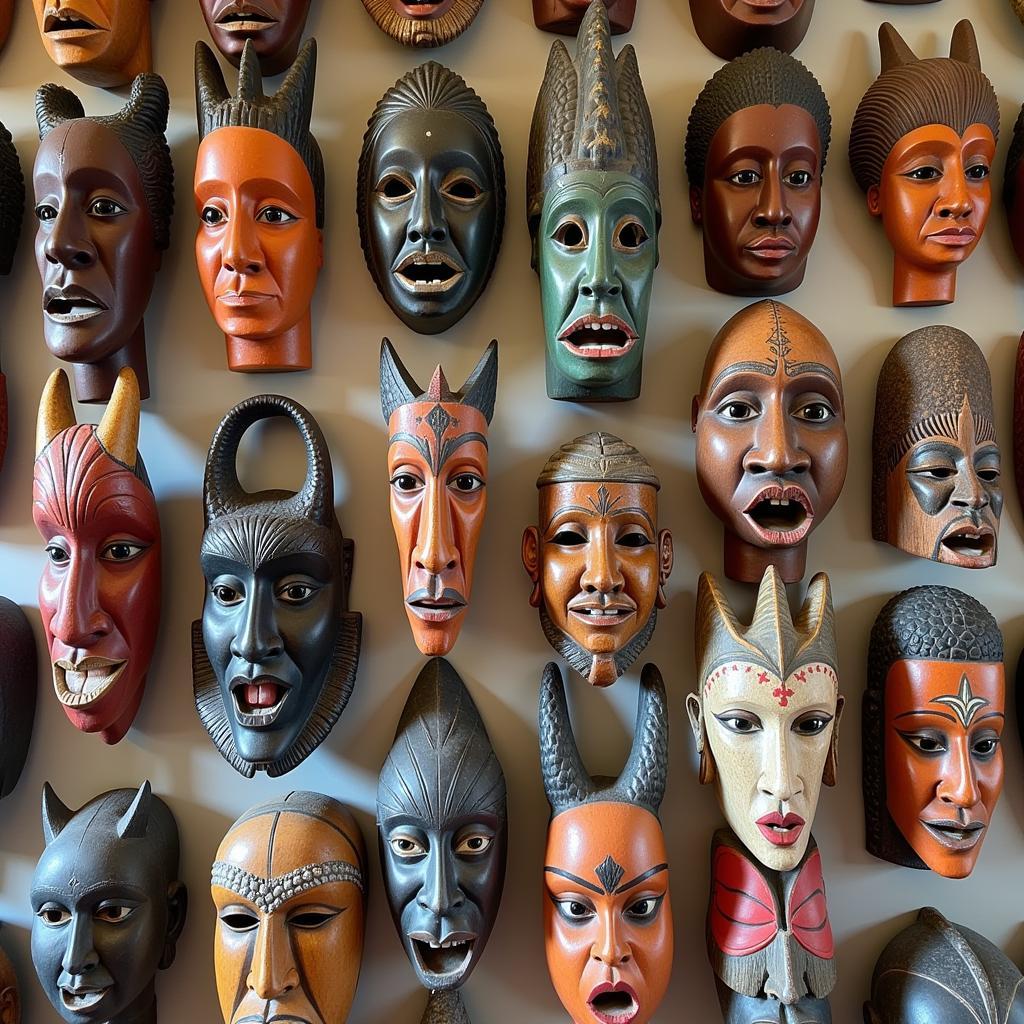African Cars Seized: Unraveling the Stories Behind the Headlines
African Cars Seized. These three words paint a picture of intrigue, raising questions about the circumstances that lead to such events. From high-profile corruption cases to smuggling operations and cross-border disputes, the seizure of vehicles in Africa often reveals deeper narratives about the continent’s political, economic, and social landscape. This article delves into the multifaceted world of seized vehicles in Africa, exploring the various reasons behind these confiscations and the impact they have on individuals and communities.
Why are African Cars Seized?
The seizure of vehicles across the African continent can be attributed to a variety of reasons, ranging from relatively minor infractions to serious criminal activities. Understanding these reasons is crucial for comprehending the broader context of law enforcement, governance, and economic activity in different African nations.
Customs and Import Violations
One of the most common reasons for vehicle seizures in Africa involves violations of customs and import regulations. This can include failing to pay import duties, attempting to smuggle goods across borders using vehicles, or misrepresenting the value of a vehicle to avoid higher taxes. These regulations vary significantly between countries, and navigating the complexities of cross-border trade can be challenging.
Involvement in Criminal Activities
Vehicles are often seized when they are implicated in criminal activities. This can range from petty theft and robbery to more serious crimes such as drug trafficking, human smuggling, and terrorism. In such cases, the seizure of the vehicle is part of a broader criminal investigation and serves as evidence.
Corruption and Political Machinations
In some instances, vehicles are seized due to corruption or political motivations. This might involve officials using their power to confiscate vehicles unjustly, or vehicles being seized as part of political power struggles. These cases highlight the challenges of ensuring transparency and accountability within government institutions.
After a complete investigation, some vehicles seized by authorities are later auctioned off to the public. These auctions provide an opportunity for individuals to acquire vehicles at potentially lower prices.
Debt Recovery and Loan Defaults
Vehicles purchased on loan can be repossessed if the owner defaults on payments. This is a standard practice globally, but it can be particularly impactful in Africa where access to credit can be limited and the loss of a vehicle can have significant consequences for individuals and businesses.
Traffic Violations and Road Safety Concerns
In many African countries, vehicles involved in serious traffic violations or those deemed unsafe to operate on the road may be seized by authorities. This is often part of broader efforts to improve road safety and reduce traffic accidents.
Understanding the Impact of Seized Vehicles
The seizure of vehicles has significant implications for both individuals and the broader economy. For individuals, the loss of a vehicle can mean the loss of livelihood, particularly for those who rely on their vehicles for transportation or business purposes. Economically, the seizure of vehicles linked to smuggling or illegal activities can disrupt trade and impact government revenue.
The Legal Framework Surrounding Seizures
The legal procedures surrounding the seizure of vehicles vary considerably across different African nations. Understanding these procedures is crucial for ensuring that due process is followed and that individuals’ rights are protected. Some countries have established clear legal frameworks, while others lack robust legal mechanisms, which can lead to inconsistencies and potential abuses of power. Even with existing legal frameworks, access to legal representation can be a barrier for many individuals, making it difficult to challenge the seizure of their vehicles. You can read more about politically motivated seizures in some African countries by researching figures like the “African Hitler”. Understanding the historical context can shed light on current issues.
Navigating the Process of Reclaiming a Seized Vehicle
Reclaiming a seized vehicle can be a complex and often lengthy process, requiring navigating bureaucratic procedures and fulfilling specific legal requirements. This can be particularly challenging for those who lack the resources or knowledge to navigate these complexities.
It’s important to understand the historical context surrounding seizures, and how they may relate to past dictatorships and their legacies. You can explore a list of African dictators to gain a broader perspective on these historical influences.
Conclusion
The seizure of African cars is a complex issue with diverse underlying causes and far-reaching consequences. From customs violations to criminal activities and political machinations, the reasons behind these seizures often reflect broader societal and economic challenges. Understanding these complexities is essential for developing effective policies and promoting good governance across the continent. This ultimately contributes to building stronger economies and more equitable societies.
FAQ
- What are the common reasons for car seizures in Africa? Customs violations, criminal activities, debt recovery, and traffic violations are among the most common reasons.
- How can I reclaim a seized vehicle in Africa? The process varies by country, but generally involves navigating specific legal procedures and fulfilling requirements.
- What is the impact of car seizures on individuals? The loss of a vehicle can have severe consequences, particularly for those who rely on it for livelihood or transportation.
- What legal frameworks govern car seizures in Africa? Legal procedures differ across countries, with some having robust frameworks while others lack clear mechanisms.
- How does corruption influence car seizures in Africa? Corruption can lead to unjust seizures, highlighting challenges in transparency and accountability.
- What happens to seized vehicles in Africa? Some are auctioned off to the public, while others may be used by government agencies or destroyed.
- How can I avoid having my car seized in Africa? Adhering to traffic laws, customs regulations, and ensuring loan repayments can help prevent seizures.
Other Questions and Related Articles
- For more information on historical context, you can find an interesting article about an “African Hitler”.
- To understand the impact of past regimes, explore our “African dictator list”.
Need Assistance? Contact Us!
For any inquiries or assistance regarding seized vehicles in Africa, please don’t hesitate to contact us:
Phone: +255768904061
Email: kaka.mag@gmail.com
Address: Mbarali DC Mawindi, Kangaga, Tanzania
Our customer service team is available 24/7 to provide support.


